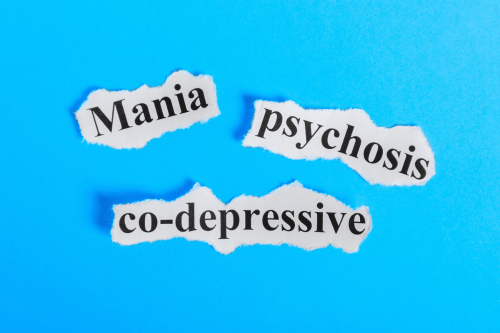What Is Meth Psychosis?: Causes, Symptoms, and Treatment
What Is Meth Psychosis?
Meth psychosis, also known as methamphetamine-induced psychosis, is a severe mental health disorder caused by chronic methamphetamine use. It leads to psychotic episodes, where individuals experience auditory hallucinations, visual hallucinations, tactile hallucinations, and paranoid delusions. This condition closely resembles primary psychosis seen in patients with schizophrenia, schizoaffective disorder, and other psychotic disorders.
Understanding Meth Psychosis
Methamphetamine-Associated Psychosis results from changes in brain chemistry due to long-term methamphetamine use disorder. The prefrontal cortex, nucleus accumbens, and parietal cortex show altered neuronal activity, leading to cognitive dysfunction, executive functions impairment, and neurocognitive deficits. Studies such as those by Chang et al., McKetin R, and Lubman DI suggest that meth-induced psychosis mimics the clinical features of first-episode schizophrenia and substance-induced psychosis.
Symptoms of Meth Psychosis

Auditory Hallucinations
Meth users frequently report hearing voices or sounds that are not real. These psychiatric symptoms resemble those found in patients with schizophrenia and may persist even after stopping meth use.
Visual Hallucination
Seeing people, lights, or shadows that are not present is another psychotic symptom of methamphetamine-induced psychotic disorders. Research from McKetin et al. highlights how chronic methamphetamine users are at greater risk for persistent psychosis even after withdrawal.
Tactile Hallucinations (Meth Mites)
Many METH-dependent individuals experience the sensation of insects crawling under their skin, leading to compulsive scratching. This condition, known as meth mites, is a severe symptom of METH-related psychosis.
Paranoid Delusions
Individuals with methamphetamine psychotic disorders often develop persecutory delusions, believing they are being watched or followed. This mirrors paranoid schizophrenia and is linked to dysfunction in the frontal lobe and cingulate cortex.
Cognitive Impairment and Aggressive Behavior
Research from Mooney LJ, Marsden J, and Wang et al. suggests that meth users exhibit cognitive deficits affecting social functioning, negative symptoms, and behavioral symptoms. Cognitive symptoms such as cognitive dysfunction and impairment in schizophrenia can persist long after stopping meth use.
Causes of Meth Psychosis
Physiological Effects of Methamphetamine
Methamphetamine increases blood pressure and dopamine levels in the substantia nigra, leading to psychotic symptoms. Previous studies, such as those by Okahisa Y and Ishiguro T, highlight how methamphetamine-dependent individuals suffer from permanent changes in neuronal integrity.
Neurological Impact on the Brain
The prefrontal cortex, parietal cortex, and cingulate cortex show altered activity in individuals with METH psychosis. Studies from Acta Psychiatr Scand suggest that METH-induced psychosis is a diagnostic entity closely resembling function in schizophrenia.
Duration of Meth-Induced Psychosis
Acute Episodes
Acute psychotic episodes can last for hours to days. Substance use disorders, especially involving illicit drugs like meth, increase the risk of prolonged psychosis.
Factors Influencing Duration
The recurrence of methamphetamine psychosis depends on:
- Frequency and dosage of methamphetamine use disorder
- Underlying mental disorders such as bipolar disorder or depressive symptoms
- Presence of cognitive dysfunction and neurocognitive deficits
- Systematic review findings suggest links between spontaneous recurrences and impairment in schizophrenia.
Treatment Options for Meth Psychosis

Rehabilitation Programs
Treatment options include medical detox and inpatient rehab, which help METH-dependent individuals recover safely. Studies such as Schizophr Res and Ann N Y Acad Sci highlight the importance of structured rehab programs for patients with methamphetamine psychosis.
Supportive Therapy
Therapies such as cognitive-behavioral therapy (CBT) help improve executive functions and reduce cognitive deficits associated with meth psychosis.
Emergency Care and Crisis Intervention
Hospitalization may be necessary for patients with schizophrenia experiencing severe METH-related psychosis. Antipsychotic medications can help stabilize psychiatric symptoms and prevent further decline in cognitive function.
Identifying Individuals at Risk
Certain individuals have a higher vulnerability to psychosis, including:
- Chronic METH users
- Those with diagnosis of schizophrenia or bipolar disorder
- METH-dependent individuals with previous studies showing psychiatric disorder risk
How to Support Someone with Meth Psychosis
- Stay calm and avoid escalating behavioral symptoms
- Remove dangerous objects to prevent self-harm
- Encourage professional treatment of methamphetamine psychosis
- Seek emergency help if psychotic symptoms become life-threatening
Preventive Measures
Reducing Methamphetamine Use
Avoiding meth is the best way to prevent METH-induced psychosis. Studies by Ujike H, Ujike et al., and Huang MC emphasize the need for long-term substance use disorder management.
Education and Awareness Programs
Programs spreading awareness about METH-dependent risks and Drug Alcohol interactions can help prevent methamphetamine-induced psychosis. Findings from Chen CK, Chang L., and indirect comparison studies support early intervention efforts.
Conclusion
Methamphetamine psychotic disorders can have devastating effects on individuals and society. Understanding the clinical features of meth-induced psychosis, recognizing psychiatric symptoms, and seeking appropriate treatment options can help prevent long-term damage. With proper rehabilitation, therapy, and community support, individuals suffering from METH-related psychosis can work toward recovery and improved social functioning.










